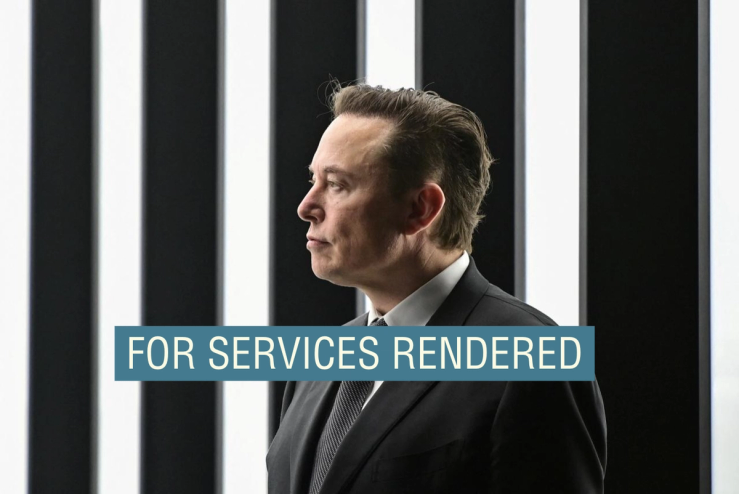Liz’s view
Tesla just gave Elon Musk a $29 billion carrot. Where’s the stick?
There will be a lot of handwringing about yesterday’s $29 billion stock grant. While companies writing large checks to a wealthy Republican bully is in fashion right now, CEOs’ threats to take their talents elsewhere are usually more subtle than this.
I’m skeptical that Musk would venture too far from Tesla. It’s his only publicly traded company, which makes its shares easier to sell than, for example, SpaceX’s. No company could afford to pay him the money he has tied up at the carmaker. And Tesla remains the best way for Musk to further consolidate his AI, space, and brain-implant companies into a robot empire.
But Musk has been working largely for free since 2018, when a Delaware court struck down a $56 billion pay package that shareholders had voted twice to approve. Since then, he has created hundreds of billions of dollars of value for investors, of which Monday’s grant entitles him to about 4%. You can argue that’s too big a slice, but I suspect the same governance scolds mad about its size are the same people who tend to push for “alignment” between executive pay and shareholder returns. Musk is getting paid a lot; his shareholders got paid a lot more.
The bigger question is whether the board, long criticized for its coziness with Musk, will demand more than that he simply show up to work. If the 2018 ruling is overturned on appeal — as I think it will be, at least partly, due to political pressure in Delaware to keep its corporate overlords happy — will the company simply revert to the preexisting plan, whose milestones have already been met? Or will it demand more of Musk? A minimum number of hours a week? (He says he’s back to sleeping in the office.) Limiting his political activities? Introducing penalties for recalls or faulty parts?
Musk famously fought, then ignored, his Twitter sitter, so I don’t expect he’d take to a scheduler logging his time. But Tesla shareholders would be better served by holding Musk’s feet to the fire than by strapping him in golden handcuffs.
Notable
- Musk’s pay package is contingent on antitrust approvals from Washington because it would increase his control over the company, giving him a 16% stake.



